TV quiz show seeks the truth



Three mothers return to the NHS in ITV drama




The Salvation Army is a Christian church and registered charity seeking to share the good news of Jesus and nurture committed followers of him. We also serve people without discrimination, care for creation and seek justice and reconciliation. We offer practical support and services in more than 700 centres throughout the UK. Go to salvationarmy.org.uk/find-a-church to find your nearest centre.
The Salvation Army first published a newspaper called the War Cry in London in December 1879, and we have continued to appear every week since then. Our name refers to our battle for people’s hearts and souls as we promote the positive impact of the Christian faith and The Salvation Army’s fight for greater social justice.
EVERY day of the year, The Salvation Army helps and supports people right round the world.
The church and charity was first established in 1865 in the East End of London, but within 20 years, it had started work in mainland Europe, America, Australia and India, living out its particular brand of practical Christianity.
Abdon Ercolani encountered a Salvation Army church in Italy in the 1890s. Described as having been ‘a bit of a bandit’, Abdon was drawn to the service by the singing he heard. While in the service he ‘received the assurance’ that God had forgiven him and he decided to become a member of The Salvation Army. However, Abdon’s new zeal for his faith was not widely welcomed within his community, and he needed the help of the organisation to move to England to start a new life with his family.
As we report in this week’s War Cry, The Salvation Army continued to support the Ercolani family, providing employment for Abdon’s son Lucian as a messenger boy and as a worker in a joinery department. With the skills Lucian developed there while also studying design, he went on to establish the furniture-making company Ercol, which has sold its products in the UK and worldwide for more than 100 years.
‘The Salvation Army is a very significant part of our evolution,’ Edward Tadros – Lucian’s grandson and, until recently, chairman of Ercol – tells us.
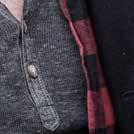


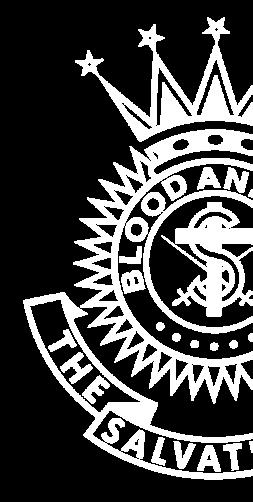

When The Salvation Army helped Lucian and his family all those years ago, it would have been impossible to imagine what the outcome would be, just as today there is no knowing what impact the support provided by the Christian organisation will have. Sometimes that help will result in dramatic positive change, while at other times the results may be harder to see.
But every day, The Salvation Army will continue to help those it can –because it knows that every individual is loved and valued by God, who wants to see them living a full, rewarding and purpose-filled life.
THE hospital ward was empty and she was running through the corridors … in her pyjamas. That was the nightmare that woke Dr Maryam Afridi (Parminder Nagra) in the first episode of Maternal on ITV1. The next morning was her first day back as a paediatrics doctor, after two years of maternity leave. As a result of staff shortages, she was put in charge on day one, which was against protocol and may have resulted in a fatal mistake.

In episode two, scheduled to be broadcast on Monday (23 January), Maryam’s anxiety – made worse by the incident – threatens to affect her work. She questions whether she can still do the job.
Maryam is one of three doctors returning to work in Manchester’s City General
Hospital after maternity leave, juggling the challenges of motherhood and their taxing professional roles in the NHS.
The return to hospital for registrar and mum-of-three Dr Helen Cavendish (Lisa McGrillis) has been tough, not just because of the demands of frontline medicine, but because she is doing ward rounds with her husband, Guy (Oliver Chris), and the woman he had an affair with.

On Monday the family drama escalates when Helen’s estranged sister, Debbie, arrives on the ward and is confronted by Guy, who doesn’t want her to have anything to do with him, Helen or their children.
In another part of the hospital, surgeon Catherine MacDiarmid (Lara Pulver) is still trying to find a way back into the operating theatre. She needs to accumulate surgical hours so that she has a chance of landing a consultancy role. But having been out of the male-dominated world of surgery for nine months, she’s at a disadvantage.
The three women are at their wits’ ends and facing impossible choices,
but they have to keep going.
While Maternal is a TV drama, the struggles experienced by the working mothers are real. All three lead actresses can relate to the subject. Lisa McGrillis says: ‘It’s a show about women returning to work and we were all in a similar boat, being parents outside of trying to work on quite a busy filming schedule.’
Writer Jacqui Honess-Martin says the inspiration for the drama came from her own struggle in returning to work.
‘Speaking to my friends, I realised that everyone else was having the same experience,’ she says.
It’s comforting to know that we are not alone in our difficult experiences. We may be dealing with the stresses of work, the impact of systemic failure, the highs and lows of interpersonal relationships, or all of them at once. Many such struggles are nothing new.
Similarly relatable drama can be found in the Bible, which tells real-life stories of women and men dealing with anxiety, fraught relationships and systemic injustices.
The accounts show that God can help – sometimes through a miraculous change in circumstance, but sometimes simply with the fulfilled promise of his presence and the hope of a better future.
Whatever the story of our lives, we can put our confidence in a God who will be with us round the clock.
I realised everyone was having the same experience
MUST-HAVE. Must-see. Must-read. Everywhere I look, it seems that magazines and online articles are bombarding me with information about the latest film, TV, book and music releases – urging me to consume ‘unmissable’ content.
This month, there have been a couple of new releases that have caught my attention simply by the headlines they have generated. I read with interest about the people who queued outside bookshops to be the first to get their hands on a copy of Prince Harry’s autobiography, Spare. And when Radio Times featured an interview with Sally Wainwright, writer of the BBC drama Happy Valley, I couldn’t wait to read it.
Much as I enjoy hearing about shows that I ‘must’ watch and books I ‘really should’ read, I sometimes feel a little bogged down by all the recommendations. I can’t keep up.
It seems I’m not alone. In the podcast Book Chat – also a new release flagged up to me – novelist Bobby Palmer refers to the ‘non-stop train of hot new releases’ as a ‘rat race’. And he and his co-presenter, journalist Pandora Sykes, have decided to step away.
In Book Chat, the pair discuss old books. Titles can be aged anything from 2 to 200 years old. The point is to revisit books from the past and, through conversation, consider the value they hold today. So far books discussed have included Armistead Maupin’s 1970s San Francisco-based Tales of the City and Londoner Zadie Smith’s turn-of-the millennium debut White Teeth
I find the idea of the podcast refreshing because old books (and books we have read countless times) can still have the power to move us. We may be familiar with certain words and passages on the page, but that doesn’t mean their impact is felt any less.
When I read the Bible, written thousands of years ago, it could be easy to skim over the stories that I feel I know well. But when I take the time to re-read them and talk about them with friends, I open myself to discovering the love of God in a whole new way. It brings me fresh understanding about my purpose in the world – and offers a peace I wouldn’t ever want to miss.
A BIBLICAL site where it is said Jesus healed a blind man will be opening to the public for the first time in 2,000 years, reports entertainment and news website Unilad.
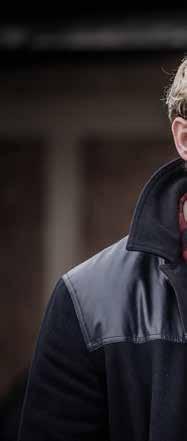
Located in the southern part of the City of David archaeological site in Jerusalem, the Pool of Siloam is traditionally thought to be the place where Jesus healed a man born blind. The Gospel of John tells how Jesus put mud on the man’s eyes then told him to wash it off in the Pool of Siloam. When he did, he was able to see.
The site also predates Jesus, having formed part of Jerusalem’s water system some 2,700 years ago.
The point is to revisit books from the past
SIMON THOMAS used his Instagram account to celebrate one year of sobriety.

The Sky Sports presenter said that alcohol had become his ‘social mask’ because he was not comfortable with the ‘fame’ side of his TV career. But his relationship with alcohol worsened when he used it to numb the pain after the loss of his first wife, Gemma.

‘For the briefest of moments it worked,’ he wrote to his 106,000 followers. ‘But it only ever gave the briefest of respites. What followed was always the same – I descended to an even darker, more fear-filled place.’
He said his drinking ‘became an expression of me… I had no off switch. This wasn’t something I was proud of and as a Christian, I felt ashamed’.
Simon said that a conversation last January with Carl Beech, who leads Christian Vision for Men and who has himself made the decision to lead a sober life, led him to choose to give up alcohol too.
‘A year on, I can honestly say it’s the best decision I have ever made,’ he said. ‘Instead of being burdensome, it has been wonderfully liberating.’
SHADOW chancellor Rachel Reeves has spoken about the importance of her Christian faith.
In an interview with The Times, the MP for Leeds West said: ‘I believe in the teachings of the Bible and charity and Christianity and caring for others. I like the coming together of people at church to celebrate and share together.’
The newspaper also reported that her grandparents were in The Salvation Army and that she and her sister worked behind the till in the church and charity’s shop during school holidays.
A 400-year-old Bible has been sold at auction in Belfast for £20,000.
Bloomfield Auctions said the copy of the Geneva Bible had belonged to a woman named Elizabeth Pole, who travelled to what is now the US in 1633 and who, although not directly involved in the original transaction of acquiring the land from Native Americans, is credited with having founded the town of Taunton in Massachusetts.
The Geneva Bible was a translation into English first published in 1560, preceding the appearance of the King James Bible by some 50 years.
THOUGH James Norton is making headlines for his portrayal of a murderous psychopath in BBC1’s Happy Valley, the actor’s ‘TV soulmate is more likely to be Sidney Chambers, the empathetic, tortured vicar he played in four series of ITV’s Grantchester’, wrote interviewer Amy Raphael in Radio Times After commenting on James’s educational background – which included attending a Benedictine boarding school in North Yorkshire and studying theology at Cambridge University – Amy asked him how he felt about the importance of ‘exploring religious imagery on screen’.
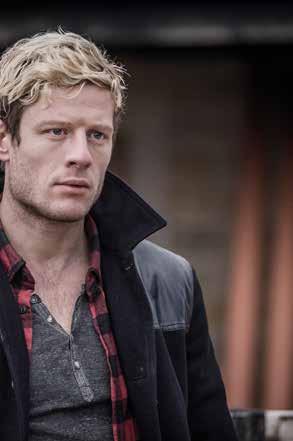
‘The more we interrogate religion, the better,’ James said. ‘That’s why I studied theology: religion is such a significant part of our lives, whether you’re religious or not. It underpins so much art, literature and music.’
When their conversation turned to the series of Grantchester, in which the actor played a 1950s crime-solving clergyman, James said: ‘It’s such a lovely show… I had more fun than I’ve ever had on the set of Grantchester. When I read about it, my heart slightly aches.’
THE start of a new year can encourage people to resolve to live more healthily. Magazine articles and TV shows highlight the health benefits of going to the gym, eating a more plant-based diet and reducing or cutting out alcohol consumption. But, while many people start the first few days of the month full of enthusiasm, as the weeks chug on, their determination can waver.
US-based alcohol-free coach Rose Ann Forte explains that part of the problem can be aiming to give up something for good, which she says can be ‘super daunting’. Instead, she suggests aiming for a specific period of time.

‘There is a much higher success rate when you say just 12 weeks. That gives your body a chance to document the changes – to notice that you’re sleeping better, your blood pressure is lower, your weight is down, your confidence is up, your joy is up.’
She also talks about that length of time being most effective because the task moves from being a detox to a change in habit, which takes at least 60 days.
Rose Ann speaks from experience. Before she began coaching she had an alcohol problem that was getting worse. What had begun as heavy social drinking turned into heavy anxiety, depression and stress drinking after her marriage broke down, and it was affecting her health.
‘It was a serious problem,’ she says, ‘yet I hid it fairly well from a lot of people. If I went out to the bar with friends, I’d have a few drinks, control myself, then go home and start drinking more.’
Eventually, Rose Ann took part in a 12-week coaching programme that helped her to address the root causes of her drinking and taught her how to respond to anxiety and learn to have fun in different ways.
‘I was shocked at the complete transformation that I went through in my programme,’ she says. ‘But I recognised God’s
word being taught in it – concepts of forgiveness and staying the course.’
Despite the problems she was having, Rose Ann did have a strong Christian faith. She believed that it was her faith, together with the coaching programme, that helped her to overcome the drinking.
Her experiences prompted her to write The Plans He Has for Me, a 12-week devotional book that each day gives readers a Scripture and a ‘mindful minute’, which is a short thought. Then there is a space for people to write down their
In the first few weeks of the new year, many people make resolutions to give up certain habits, including drinking alcohol. But sometimes, as life goes on, that decision becomes more difficult to uphold. Alcohol-free coach ROSE ANN FORTE offers advice on how to give up drinking and tells of her own experiences with the substance
‘daily gratitude’ and their ‘reflections’.
‘The book is about the science of the brain and how God designed our brains,’ she explains. ‘We practise and we do things over and again, and they become embedded.
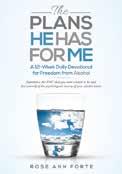
‘It means that we don’t have to relearn everything every day. But it also means that bad habits get stuck in our brains too. Nobody is immune to this, no matter what their social status is. We are all capable of falling into problem drinking if we use alcohol for the wrong reasons. I want to let people know that they don’t have to suffer alone.’
Rose Ann refers to problems with alcohol as ‘secret suffering’, because people often do not want to talk about them.


‘While working on a coaching programme, I spoke to hundreds of people who would tell me they had never shared their alcohol problem with anyone, including a spouse,’ she says. ‘There’s a lot of deception in the world about alcohol. Advertising is built around fun, relaxation and all these wonderful romantic things, and I believe that’s the big lie.’
Through her book and her coaching, Rose Ann wants to empower people to choose freedom from alcohol and to find new ways of enjoying life. She uses faith as a key component.

‘Faith gives you hope for something better,’ she says. ‘The title
of the book is based on Jeremiah 29:11 in the Bible – “I know the plans I have for you, says the Lord, plans to give you a hope and a future.” In my darkest moments, I was reading those words and wondering what in the world the plan was, because I was done. But I trusted that there was one, and there was. I want to tell people that God has a plan for every single one of us.’
Rose Ann explains how her life changed when she was able to remain free of alcohol.
‘I went from somebody who was super sick, was diagnosed with major depressive disorder and was praying to God to take me off this Earth to somebody who wrote a book that is changing lives. I’m thinner, I’m calmer, I’m happier. I have a life full of purpose and joy. And I want people to know that isn’t reserved for me alone. Nobody is excluded from God’s promises.’
l
Plans He Has
There’s a lot of deception about alcoholRose Ann Forte
WELL beyond the mid-century decades when the furniture manufacturer was making its name, Ercol’s chairs, tables and cabinets have been a feature of homes and public buildings. The company that was exhibited at the postwar pick-meup Festival of Britain in 1951 still has enthusiasts seeking out preloved pieces and continues to produce old and newly designed furniture at facilities including its 21st-century factory in Princes Risborough, Buckinghamshire. Only last year its classic Windsor chair design was the focus of an episode of TV’s Inside the Factory. Recently, though, Edward Tadros, who has just passed on the chairmanship of the company to his son, Henry, has been engaging in the sort of activities often shown in Who Do You Think You Are?
And in looking at his family history, he has been looking at the history of the company, because, down through its 100-plus years, Ercol has remained owned by the family of its founder, Lucian R Ercolani.


‘Grandpa was very Italian,’ says Edward

For more than 100 years, Ercol has been producing highly regarded furniture. The company is still run by the family of its founder Lucian R Ercolani, who was born in Italy but was brought to Britain and given an opportunity to develop his skills by The Salvation Army
Feature by Philip HalcrowPHILIP HALCROW COURTESY OF ERCOL

when we meet at the factory. ‘He had this idea of setting up a furniture dynasty that would go down the generations. Other companies, such as G Plan and Parker Knoll, have been bought and sold. But our family never sold Ercol. We decided we wanted to keep making furniture.’

Edward’s enquiry into the past has led
him to The Salvation Army’s International Heritage Centre in south London, where he has set eyes on some archive material.
‘From an early age, I knew the story of how my grandfather came to be in this country and the association with The Salvation Army,’ he says. ‘But it was fascinating being in the heritage centre with my daughter. We were astonished to be sitting there, reading documents that referred to my grandfather and great-grandfather.’
If the family history is viewed in one way, it could be said the origins of Ercol’s classic furniture can be traced back to a bench in Florence, Italy, where Edward’s great-grandfather sat one day, having wandered into a Salvation Army meeting.

‘My great-grandfather Abdon was a maker of picture frames,’ says Edward. ‘He even went on to invent a machine that could make wavy mouldings.
‘At first, he was living in a village called Sant’Angelo in Vado, near Urbino.
He was a bit of a bandit, apparently. He married the daughter of the local landed gentry, much – I think – to her family’s displeasure, so they eloped to Florence. Then at some stage he happened to come across The Salvation Army, and he found salvation, because he thought he’d behaved badly.’
The story of Abdon’s life-changing encounter was recorded in an 1895 issue of a Salvation Army magazine which Edward saw at the heritage centre. On his smartphone, Edward brings up photographs of the relevant pages of All the World
In the article, Abdon Ercolani describes how he was walking along a road with his little son, when his attention was grabbed by the sound of singing. He looked up and saw the words ‘Esercito della Salvezza’ –The Salvation Army – over an open door.
Abdon says: ‘I went in and sat down on the front bench in the hall, and listened attentively to the explanation of the Bible. When the officers knelt down to pray I was
From an early age, I knew the story of how my grandfather came to this countryPH I LIP Lucian R Ercolani An Evergreen easy chair in the current Ercol brochure and (below) in production
invited to pray also. It was in this meeting that I received the assurance that God had pardoned me, and from that day forward I have continued to attend the meetings regularly.’
After some initial misgivings, his wife also began to attend Salvation Army worship and, says Abdon, ‘accepted the salvation of Jesus Christ’.

Summing up the story, the reporter in All the World writes that ‘Ercolani and his family are real Salvationists, and a great blessing and help to the work in Florence’.

However, Abdon’s passion for spreading the gospel caused problems. Lucian would later recall in his autobiography, A Furniture Maker, how his father would cycle around villages, having apparently become ‘obsessed with the idea that the villagers should hear the story of Christianity in plain language – with the unfortunate inference that they would hear it from the priests mostly in Latin’.
Edward tells me: ‘After joining The Salvation Army, he became thoroughly
evangelical about his faith. It stirred up tension, and Abdon had his workshop smashed up. In the end The Salvation Army rescued him and brought him and then the rest of his family to Walthamstow.’
In his autobiography Lucian, writes of how, when the family arrived in London, The Salvation Army gave his father carpentry work, and Lucian himself served as a messenger boy between two of its centres while also studying drawing and design. Out of hours, Lucian attended – and played trombone in the band – at Salvation Army services, indoors and in the open air.
He confesses: ‘During that period I felt it was our Lord’s dispensation to give my parents and myself shelter and peace in another country, and I felt that in recognition of this I should one day take steps to become a Salvation Army officer and preach the gospel as my father had begun to do.’
But, he says, over time another aim took
shape in his mind.
A Salvation Army officer pointed out to Lucian that the organisation had a vacancy in its joinery department, which seemed to fit in with his studies and interest in following in his father’s footsteps. So Lucian began to work there as ‘a practical learner’, among people who ‘were living in a special building at the Salvation Army Social Headquarters’.
‘Nowadays, they would be called “dropouts”, but in their craft I cannot speak
Lucian began to work in the joinery department
Eventually, the commitment of time necessary for his studies led to his ending his involvement with The Salvation Army. He would go on to work for other companies – including Frederick Parker and E Gomme – before setting up his own in High Wycombe. But, looking back on the days when he was studying design at college and developing his skills at The Salvation Army, he wrote that he felt he was ‘occupying my time in a fashion which I thought was pleasing to our Lord, who I thought was leading me’.
can say it that way – about furniture and had a massive belief in the beauty and quality of furniture and of providing nice objects for people’s homes.

‘I can imagine him talking in terms of furniture-making being pleasing to the Lord: underneath the table must be finished as well as the top, because God is all-seeing.
It was an ethos of doing things with integrity
‘He was also committed to the wellbeing of people who worked for us and made the furniture. As an employer, he wanted things done well. He was very demanding, but very fair.
quality of furniture we make. One design for a chair may be only 18 months old, whereas another design for a loveseat may be 70 years old; one dining chair may be by a Japanese designer, while another is designed by a Dane. But they have a heritage of design between them – the bent timber, sticks and so on.
‘Secondly, we aim to run the company with integrity and a conscience.’
Recalling his grandfather, Edward says: ‘I actually don’t remember him taking a great interest in faith in the sense of being a great churchgoer. It was more of an ethos of Christianity in terms of doing things with integrity and conscience and treating other people well.
‘He was hugely committed to making good furniture. He was evangelical – if you
‘And he saw the craftsman’s time as being the most valuable thing they had, so he made sure that they could use the best and most powerful machinery to do their job. Now too the CNC machines that shape the parts are increasingly sophisticated; but the other side of the coin is that when the parts come to be assembled it’s very much by hand.’
Edward believes that, as the company has been passed down, so has the ethos of the figure who is affectionately referred to as ‘the Old Man’.
‘I suppose we try to maintain it in two ways,’ says Edward. ‘First in the type and
Walking round the factory, we come across people gathering parts for the classic Windsor chair, working on the frame of a 1950s-designed Evergreen easy chair and steam-bending wood for a Marino armchair. In another area, one of the range of IO coffee and side tables designed by Norwegian Lars Beller Fjetland, launched in 2020, moves through a suddenly illuminated drying tunnel.
Surrounded by machines, shelves of timber and employees playing their part in producing pieces of furniture for people’s homes, Edward reflects on how it all came to be.
‘If The Salvation Army hadn’t caught the attention of Abdon and hadn’t brought the family to London, we wouldn’t be here,’ he says. ‘The Salvation Army is a very significant part of our evolution.’

THE War Cry invites readers to send in requests for prayer, including the first names of individuals and details of their circumstances, for publication. Send your Prayerlink requests to warcry@salvationarmy.org.uk or to War Cry, 101 Newington Causeway, London SE1 6BN. Mark your correspondence ‘Confidential’.
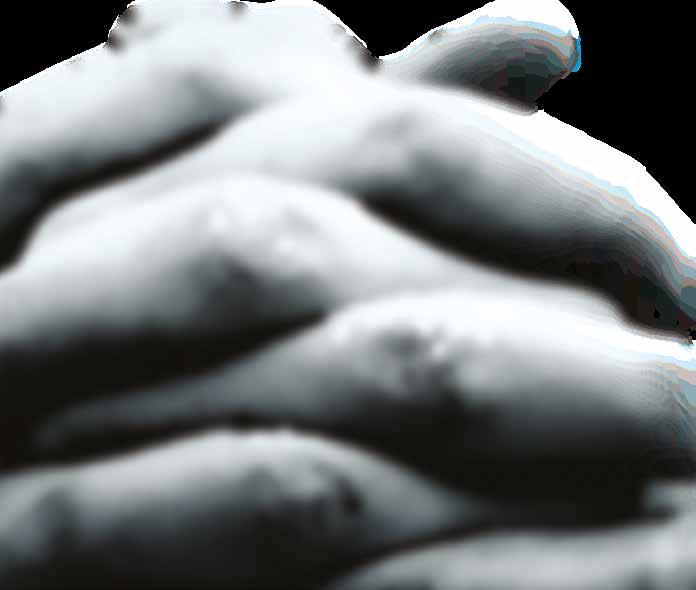
There is no set formula to becoming a Christian, but many people have found saying this prayer to be a helpful first step to a relationship with God
Lord Jesus Christ, I am truly sorry for the things I have done wrong in my life. Please forgive me. I now turn from everything that I know is wrong.
Thank you that you died on the cross for me so that I could be forgiven and set free.
Thank you that you offer me forgiveness and the gift of your Holy Spirit. Please come into my life by your Holy Spirit to be with me for ever.
Thank you, Lord Jesus. Amen

When we first explore Christianity, we may have lots of questions. In this series, some of the basic principles of the faith are explained

GOD’S gift of eternal life is just that: a gift. We may question this: ‘Isn’t that a bit easy? Surely, I have to do something in return? Where’s the invoice?’
This has been one of the stumbling blocks of the Church throughout history – the juxtaposition between earning our salvation and being gifted our salvation. People can feel very unsafe with the concept that God just gives it away. It makes no sense; it’s scandalous, irresponsible even.
Does God ask for nothing in return? No.
He doesn’t ask for our good works and best behaviour; he asks for way more. He asks for our lives. He asks to be believed in. He asks us to trust him; he asks us to depend on him fully. He asks us to have faith in him. He wants relationship. On balance, a few good works and behavioural changes would be the easier option.
God is like no earthly father
God the Father knows us and wants to be known by us. Like all relationships in life, it takes time to grow. As we walk beside him, we learn that God loves us. He is full of compassion; he is faithful, good and reliable; he fights our battles, wants to heal our broken places and give us hope and purpose.
This concept of God can be hard to grasp if our experiences of being parented have been challenging. God is like no earthly father; neither is he a scary being waiting for the opportunity to punish us.
God wants us to be confident with him, like little children. He wants us to boldly ask for his help with expectation of a response. He is a willing Father, a perfect Father and we are safe with him. He is ready and waiting for us to walk with him and to allow him to lead us.
Jesus resumed talking to the people, but now tenderly. ‘The Father has given me all these things to do and say… Are you tired? Worn out? Burned out on religion? Come to me. Get away with me and you’ll recover your life (Matthew 11:27 and 28 The Message).
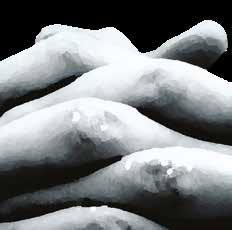
Excerpt taken from First 30 Days of Walking with Jesus by Carrie and David Grant, published by SPCK. ISBN 978-0-281-08678-8
To receive basic reading about Christianity and information about The Salvation Army, complete this coupon and send it to
a

Name
War Cry
101 Newington Causeway London SE1 6BN
Address
Extract from Why Jesus? by Nicky Gumbel published by Alpha International, 2011. Used by kind permission of Alpha International
Or email your details and request to warcry@salvationarmy.org.uk
What is the name of the pub featured in the ITV soap Emmerdale?
In which year did Queen Elizabeth I die?
Elton John’s 1994 hit ‘Can You Feel the Love Tonight’ was from the soundtrack of which film?
On the periodic table, which chemical element is identified by the symbol Li?
Elland Road is the home of which Premier League football team?
In mathematics, what is the lowest possible prime number?

IT’S true! Ross Kemp is back presenting the BBC1 daytime quiz Bridge of Lies. The show – which returns for a new series on Monday (23 January) – invites members of the public to make their way across a virtual bridge by standing on the statements they know to be true and avoiding the lies. Only those smart enough to sidestep the falsehoods are in the running for a cash prize.
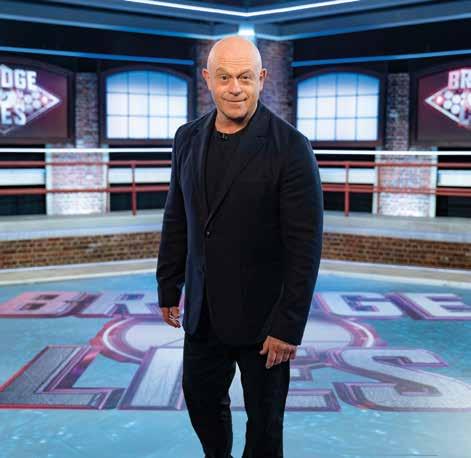
First broadcast last year, Bridge of Lies proved a hit with daytime viewers, resulting in a celebrity version being launched earlier this month. Guiding contestants through their journey on the bridge is Kemp, who believes the show has been a success because ‘it works on so many different levels’.
He says: ‘It’s a quiz show, but there’s a physicality to it, and a lot of it is about strategy and camaraderie. It’s eye-level family entertainment. It’s not looking down on you and it’s not looking up to you.’
As contestants take on the challenge of the bridge, they know full well that there’s a chance of failure. They might make a mistake by declaring a statement to be true when it is not. A lie might get in their head and trip them up.
Perhaps, in a game show, being caught out by the odd falsehood doesn’t matter too much – but in real life, knowing the truth is important. It always has been.
Two thousand years ago a man named Jesus urged his followers to discover the truth about a God who loved them. He taught them that God was willing to forgive their mistakes and help them walk a new path, free from shame, despair and guilt. He pointed out that if they trusted in God as their heavenly Father, they would experience joy, not only in this life, but also the next. To those who believed in him, Jesus said: ‘You will know the truth, and the truth will set you free’ (John 8:32 Contemporary English Version).
When we team up with Jesus and give our heart to God, we need never face the future alone. God promises to guide our every step –whatever lies ahead.
Knowing the truth is importantBBC/STV STUDIOS





INGREDIENTS
2tbsp olive oil 6 pork sausages 1 red onion, sliced 2 carrots, peeled and sliced
1 red pepper, cored, seeded and chopped Salt and freshly ground black pepper
2tsp paprika
1tsp dried oregano 250g green lentils
300g passata
Preheat the oven to 180C/350F/Gas Mark 4. Heat 1tbsp olive oil in a large sauté pan over a moderate heat until hot.
Prick the sausages all over with a fork, then brown in the oil, turning from time to time, until golden all over. Remove from the pan and place in a rectangular baking dish.
Heat the remaining oil in the pan, then add the red onion, carrots, red pepper and a pinch of salt, sautéing for 4-5 minutes.
Stir in the paprika, oregano, lentils, passata and stock. Bring to the boil, stirring frequently. Once boiled, pour the mixture over the sausages and cover the baking dish with aluminium foil.
Bake for 35-45 minutes, until the lentils are soft to the bite and have absorbed some of the stock and passata.
Remove from the oven and adjust the seasoning to taste with more salt and some
Allow to stand for 5 minutes before serving with a garnish of parsley.







Preheat the oven to 200C/400F/ Gas Mark 6.
Put the apples and blackberries in an ovenproof dish, then pour over the apple juice and the white sugar.

To make the crumble, place the butter, brown sugar, flour and almonds in a food processor and pulse until the mixture resembles breadcrumbs, then mix in the hazelnuts and oats.
Sprinkle the crumble over the fruit and